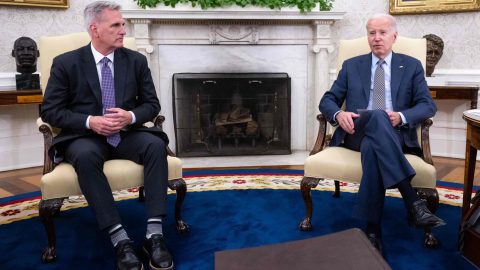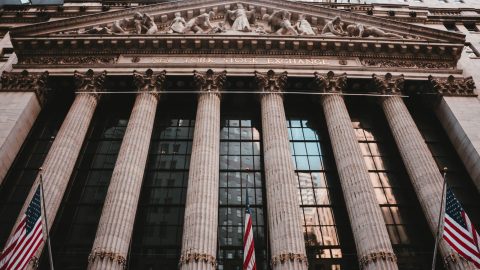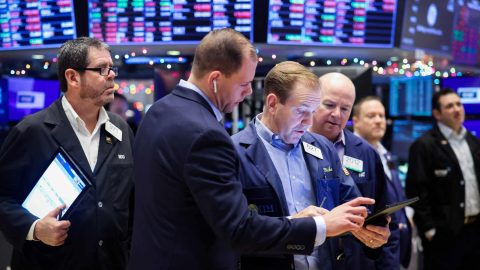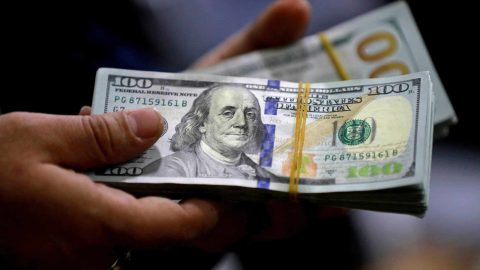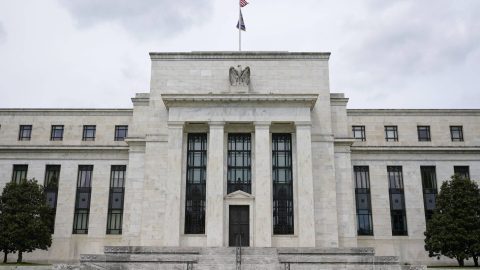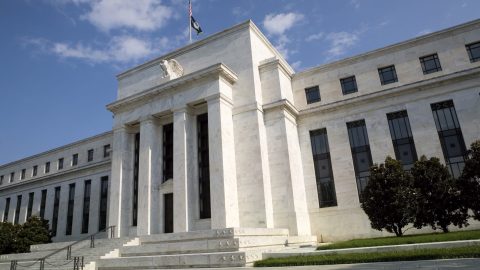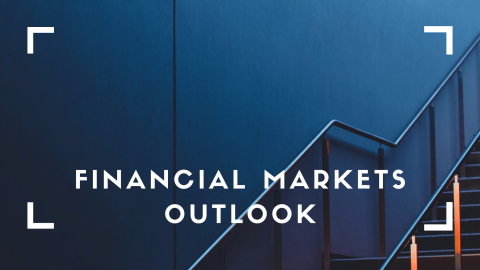Author's Contributions
Fight against inflation: Monetary policy remains restrictive
Central banks remain on a restrictive course and hold out the prospect of further key interest rate hikes. Although there are some signs of a further decline in inflation, it is falling more slowly than expected. You can read where the journey could lead in the blog post.
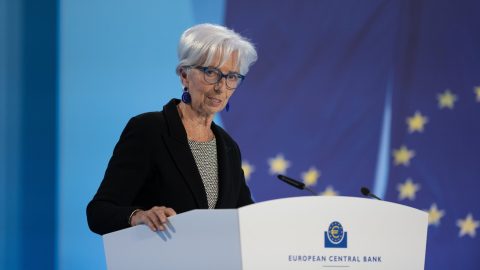
Interest rate decisions in focus: what will the central banks do?
This week, the markets are eagerly awaiting the upcoming interest rate decisions. The Fed in the USA will make the first move today, Wednesday. For the first time in the current cycle, no increase in the key interest rate is expected. For tomorrow’s interest rate decision by the ECB, on the other hand, the market expects a further rate hike of 25 basis points.
US labour market: strong employment growth
Surprisingly good figures came from the US labor market in the previous week. Despite the strong growth in employment, however, economic growth has recently been rather meager. Recession risks also remain at an uncomfortably high level.
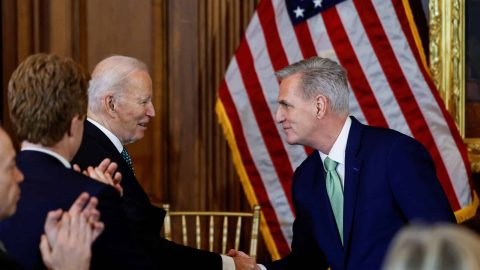
“Brinkmanship” – Agreement on Debt Ceiling
The representatives of the Democrats and the Republicans have reached an agreement in the dispute over the debt ceiling in the USA. The cap of $31,400 billion is to be suspended until 2025. Subject to approval in the House of Representatives and Congress, the agreement is positive for the financial markets. However, another effect could weigh on the markets further down the line.
Meager Growth
Global growth is likely to cool significantly in the second quarter. At the same time, recession risks remain uncomfortably high, as Chief Economist Gerhard Winzer writes in his market commentary. The further course of negotiations on the US debt ceiling is also likely to cause tension on the market.

Markets in a wait-and-see mode
How much longer will the sideways trend on the stock markets last? Negative and positive factors balance each other out. One unresolved issue among many is the U.S. debt ceiling.
Central banks weigh risks
Most recently, central banks have signaled a somewhat less sharpish stance, as an effect of the rapid key rate hikes on the monetary environment has already become visible. However, recent economic data are dampening hopes for a rapid decline in inflation, as Chief Economist Gerhard Winzer explains in his market commentary.
Where is the recession?
The global economy grew strongly in the first quarter of 2023. At the same time, inflation remains too high, which is why central banks will continue to pursue a restrictive monetary policy. Although growth indicators are good to strong, there are therefore increased risks of recession.
Banking problems support share prices
Since the banking problems in the US emerged in March, share prices have risen and expectations for future key interest rates have fallen significantly. However, inflation dynamics remain the most important factor for the markets, but unfortunately also one that is difficult to assess.
Game Changer
The current crisis of confidence continues to dominate market activity and has significantly increased uncertainty about the future development of economic indicators. Read more in the current market commentary by Chief Economist Gerhard Winzer.
The Good, the Bad and the Hawk
Last week brought good, bad and inflation-fighting news, all from the US. At the start of the new trading week, the focus is on the turbulence surrounding Silicon Valley Bank.
Conditionally positive economic news
Last week, positive economic data brought back some confidence. The global purchasing managers’ index, one of the most important survey-based economic reports, rose for the third time in a row. On the other hand, the latest inflation reports dampen hopes of a rapid decline in inflation without additional key rate hikes.
Risk inflation persistence
Inflation, which remains too high, continues to be the dominant macroeconomic issue. Hopes that inflation will fall as quickly as it has risen have been dampened, as Chief Economist Gerhard Winzer explains in his market commentary.
Calibration
Central banks and markets are in a calibration phase. The question is how many key rate hikes are needed to be able to confidently expect inflation to fall in the direction of 2%. Particular attention is therefore once again being paid to the US inflation data, which will be published today, Tuesday.
Party Crashers
Improved growth prospects for China and Europe and hopes of a sustained decline in inflation have supported the markets since the beginning of the year. However, sharp central bank rhetoric and weak growth indicators in the USA could prove to be spoilers.
Tug of war
At present, indicators on inflation and economic activity are competing to determine which of the two categories is more important for the financial market. Read more in the current market commentary by Chief Economist Gerhard Winzer.
Ten topics for 2023
The previous year was marked by unexpectedly high inflation and rapid key interest rate hikes – but what will the new year bring?
In his article, Chief Economist Gerhard Winzer presents ten topics that could be particularly relevant for the financial markets in 2023.
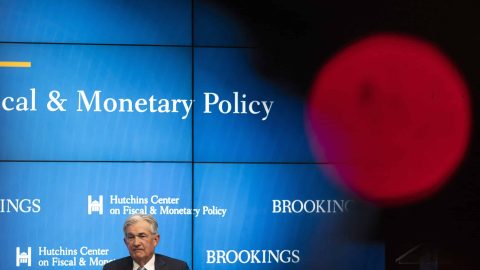
High uncertainty reduces potential for asset price increases
The environment for the financial markets remains highly uncertain. The further development of inflation and economic growth is not sufficiently foreseeable. This points to continued high fluctuations in asset prices.
Ceteris Paribus
The indications that the inflation peak will be exceeded are growing. If the relationship between inflation surprises (upside) and asset prices (downside) were to hold, that would be, all other things being equal, good news for the financial market.
Transition Phase
So far this year, high inflation rates have been the driving factor on the financial markets. This could now change, as Chief Economist Gerhard Winzer writes. Disappointingly weak indicators of economic activity could now increasingly come into focus.
One month is not yet a trend
The rise in inflation in the USA was recently lower than expected, which led to a significantly brighter mood on the markets. However, a favourable inflation report is not yet a trend, as Chief Economist Gerhard Winzer emphasises.
Reduction in the pace of key interest rate increases
More and more central banks are signalling a reduction in the pace at which they are raising key interest rates. However, as Chief Economist Gerhard Winzer explains, this does not necessarily mean that central banks are softening their focus on fighting inflation. Rather, a pause in the rate hike cycle would require a change in inflation dynamics.
Strong US dollar increases pressure on Japan’s central bank
The soaring US dollar is causing problems in countries outside the USA. In Japan, the Yen has weakened considerably recently because, unlike the other central banks, the Bank of Japan is sticking to its ultra-loose monetary policy. Against this backdrop, the meeting of the Japanese central bank next Friday will be more in focus than usual.
Inflation rates (still) too high
The inflation problem continues to preoccupy the central banks. They are likely to maintain their basic restrictive stance until inflation rates have convincingly embarked on a downward trend.
Fed remains on course
The latest US labor market data suggest that the Fed will remain on its course of more restrictive monetary policy. “As long as job growth remains strong and unemployment and participation rates remain low, the Fed will maintain its basic restrictive stance”, writes Head Economist Gerhard Winzer in his market commentary.
Excessive Pessimism?
The unexpectedly high inflation rates draw even wider circles. In view of the pessimistic mood, the question arises whether the negative environment is already being reflected by market prices.
Rapid and synchronous key rate hikes
Central banks are responding to high inflation by raising key interest rates. Further key rate hikes are likely this week as well.
Monetary tightening even as growth slows further?
Last week, three major central banks have raised their key interest rates further. By nature, however, it is not easy to find the right key interest rate level – especially in the current environment.

For some time valid: Elevated recession risks and restrictive monetary policy
The central banks want to achieve their long-term inflation target of 2%. In order to achieve this goal, they have raised key interest rates and are implementing a restrictive monetary policy. The higher key interest rates will weaken economic growth and also the labour market. Whether this can be achieved without a recession or whether there will be a “soft landing” is currently the subject of heated debate.
Jackson Hole – Focus on Monetary Policy
This week, the highly acclaimed Jackson Hole Economic Symposium will take place. Fed Chairman Jerome Powell’s speech will be the center of attention.
Very tight labor market in the USA
Many economic indicators point to weakening economic momentum. Meanwhile, the US labor market continues to be very robust, which recently mitigated the immediate risks of recession in the United States.
The Euro – a Snapshot
For more than 20 years, the euro has been the instrument of payment for around 340 million people. What is the current state of our currency and what opportunities and challenges does the euro face?
Recession Risks
Ahead of the upcoming interest rate decision by the Federal Reserve, a number of economic indicators point to increasing risks of growth or recession. There are also uncertainties regarding the further development of inflation and the effectiveness of monetary policy measures.
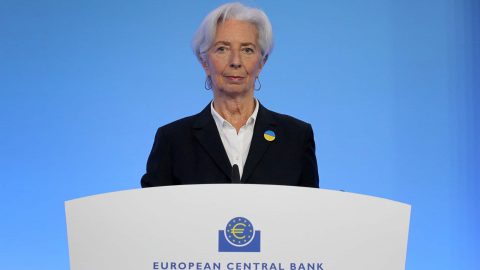
Mega interest rate hikes indirectly increase purchasing power
Gerhard Winzer, Chief Economist at Erste Asset Management, provides an overview of recent economic developments and explains, among other things, what structural problems the euro is facing.
Central Banks Attempt to Prevent Inflationary Spiral
Since the beginning of the year, the bond markets have been in a bear market. What are the implications for the economy? Erste Asset Management Chief Economist Gerhard Winzer analyzes three models in relation to the development of inflation and their implications.
Increasing growth risks
Inflation, the war in Ukraine and monetary policy are driving the markets and stoking fears of an impending recession. Initial economic indicators also point to gloomy growth prospects.

Way Out Recession?
The prices of risk asset classes are subject to downward pressure. Is an inflation spiral likely to occur? Will the increase in key interest rates trigger a recession?

High inflation rates increase downside risks
Inflation rates continue to rise, prompting central banks to accelerate rate hikes. Which models for the future inflation development are conceivable? Erste Asset Management Chief Economist Winzer analyzes which scenarios are imaginable in the future.
Growth fears
Inflation has been the underlying factor in economy for some time. A recovery of GDP on a pre-pandemic level should be reached soon. The probability of a growth phase has increased. What further developments are expected?
Hawkish and bearish
Expectations of key interest rate hikes have been the most important driving factor for the capital markets since the beginning of the year. The Federal Reserve Chairman reiterated the Fed’s hawkish and bearish stance. How will the financial environment change in the second half of the year?
Tightening of financial condition
The global economy has been confronted with two stagflationary events in the last two years: the Covid-19 pandemic and the war in Ukraine. What factors are influencing the uncertainty in the markets? Erste Asset Management Chief Economist Winzer analyzes which scenarios are conceivable in the future.
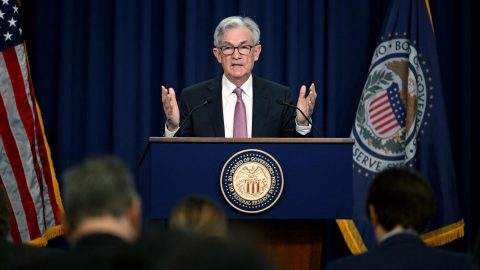
The End of Loose Monetary Policy
The US Federal Reserve is turning the interest rate screw hard and accelerating the exit from its ultra-expansive monetary policy. Will it get a grip on high inflation? And how will the economy cope with higher interest rates?
The hour of the hawks
In the US, interest rate hikes to a level of 3% by the end of 2023 have become likely. When will the European Central Bank follow? Erste Asset Management Chief Economist Gerhard Winzer analyses the interest rate policies of the central banks.

The invasion of Ukraine by Russia and its massive effects
Within two years, the global economy has been confronted by two negative events or, indeed, shocks: the Covid pandemic was the first one, having not only killed six million people globally at this point, but having also caused an unprecedented slump in the global economy and the subsequent recovery. The second one, i.e. the invasion of Ukraine by Russia, is of a geopolitical nature and has triggered a commodity price shock.
Two stagflationary shocks: pandemic and war in Ukraine
The global economy was confronted with two negative developments within two years: the Covid-19 pandemic and the Ukraine war. Erste Asset Management’s Chief Economist Winzer analyzes the stagflationary state of the economy.
The impact of the war in Ukraine
We want to highlight the possible impact of the war in Ukraine on investment decisions. In short, the conflict reinforces already existing trends. In addition, the global recovery scenario is still holding, but recession risks in Europe have increased.
Interest rate policy quo vadis? 3 monetary policy scenarios
Rising inflation and rising bond yields have recently caused uncertainty among investors. Will key interest rates in the USA be raised soon? Erste Asset Management’s Chief Economist Winzer outlines 3 scenarios for the interest rate policy of the central banks.
The crisis in Ukraine
The risk of an escalation of the geopolitical conflict between Russia, Ukraine and NATO has risen further in recent days.
10 theses for 2022
Waves of infections will continue to influence economic activity and the markets. What will happen in China, what are the inflation risks and will it be volatile? Our chief economist Gerhard Winzer has drawn up 10 theses for the year 2022.
Pandemic year three: what are the challenges ahead?
We are now into the third year of the pandemic. Since the spring 2020 collapse, economic activity and markets have shown exceptional resilience. This is not to be taken for granted. After all, the list of potential negative influences (“challenges”) is long.


